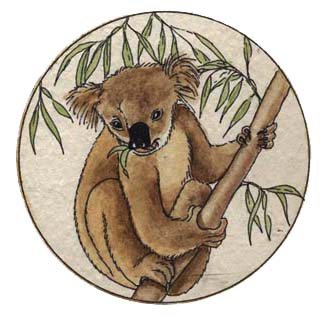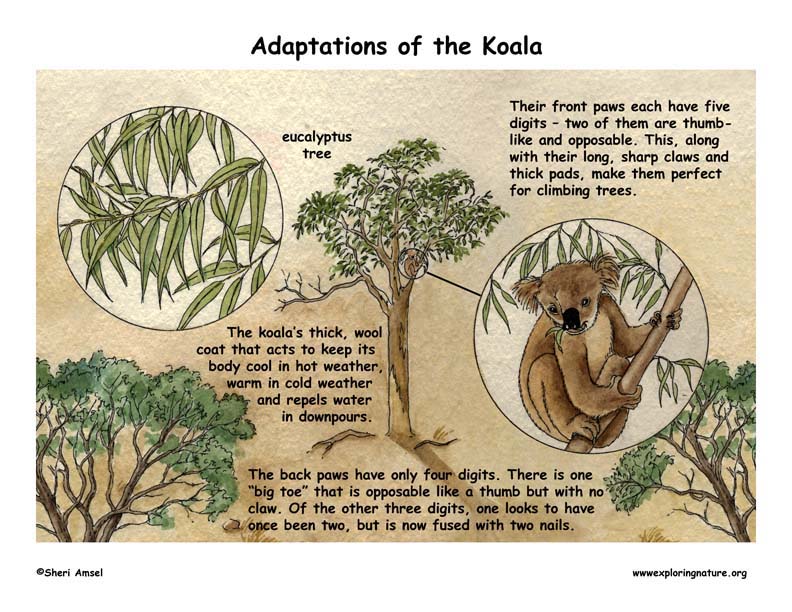

Adaptation in a population of living things happens as a result of an adaptive trait. This is any inheritable trait that increases its survival rate so that it can live longer, reproduce longer, and have more offspring (that also have that trait). Adaptive traits can improve an animal's ability to find food, make a safer home, escape predators, survive cold or heat or lack of water.
The koala has feet well-adapted for their life in the trees. Their front paws each have five digits – two of them are thumb-like and opposable. This, along with their long, sharp claws and thick pads, make them perfect for climbing trees. The back paws have only four digits. There is one “big toe” that is opposable like a thumb but with no claw. Of the other three digits, one looks to have once been two, but is now fused with two nails. It is thought to be used for grooming fur. These back paws grip the branches securely so the front paws can be free to pull off eucalyptus leaves for eating. This unique paws structure is an adaptive trait that helps the koala live high up in the trees where they spend half their day feeding on leaves and the other half sleeping. Another physical adaptation is the koala’s thick, wool coat that acts to keep its body cool in hot weather, warm in cold weather and repels water in downpours.
For Discussion and Critical Thinking:
The koala has adaptive traits that help it survive in its Australian eucalyptus forests.
1. Name two of the koala’s adaptive traits and how it helps it survive:
2. Name two animals from your yard, local parks or wild areas (forests, prairies, wetlands, mountains, etc.) who have paws, hooves or feet with adaptive traits that help it survive (collect food, build shelter, repel danger).
3. What adaptive traits do your hands or feet have that help you?
When you research information you must cite the reference. Citing for websites is different from citing from books, magazines and periodicals. The style of citing shown here is from the MLA Style Citations (Modern Language Association).
When citing a WEBSITE the general format is as follows.
Author Last Name, First Name(s). "Title: Subtitle of Part of Web Page, if appropriate." Title: Subtitle: Section of Page if appropriate. Sponsoring/Publishing Agency, If Given. Additional significant descriptive information. Date of Electronic Publication or other Date, such as Last Updated. Day Month Year of access < URL >.
Amsel, Sheri. "Adaptations of the Koala" Exploring Nature Educational Resource ©2005-2024. December 15, 2024
< http://www.exploringnature.org/db/view/1670 >

